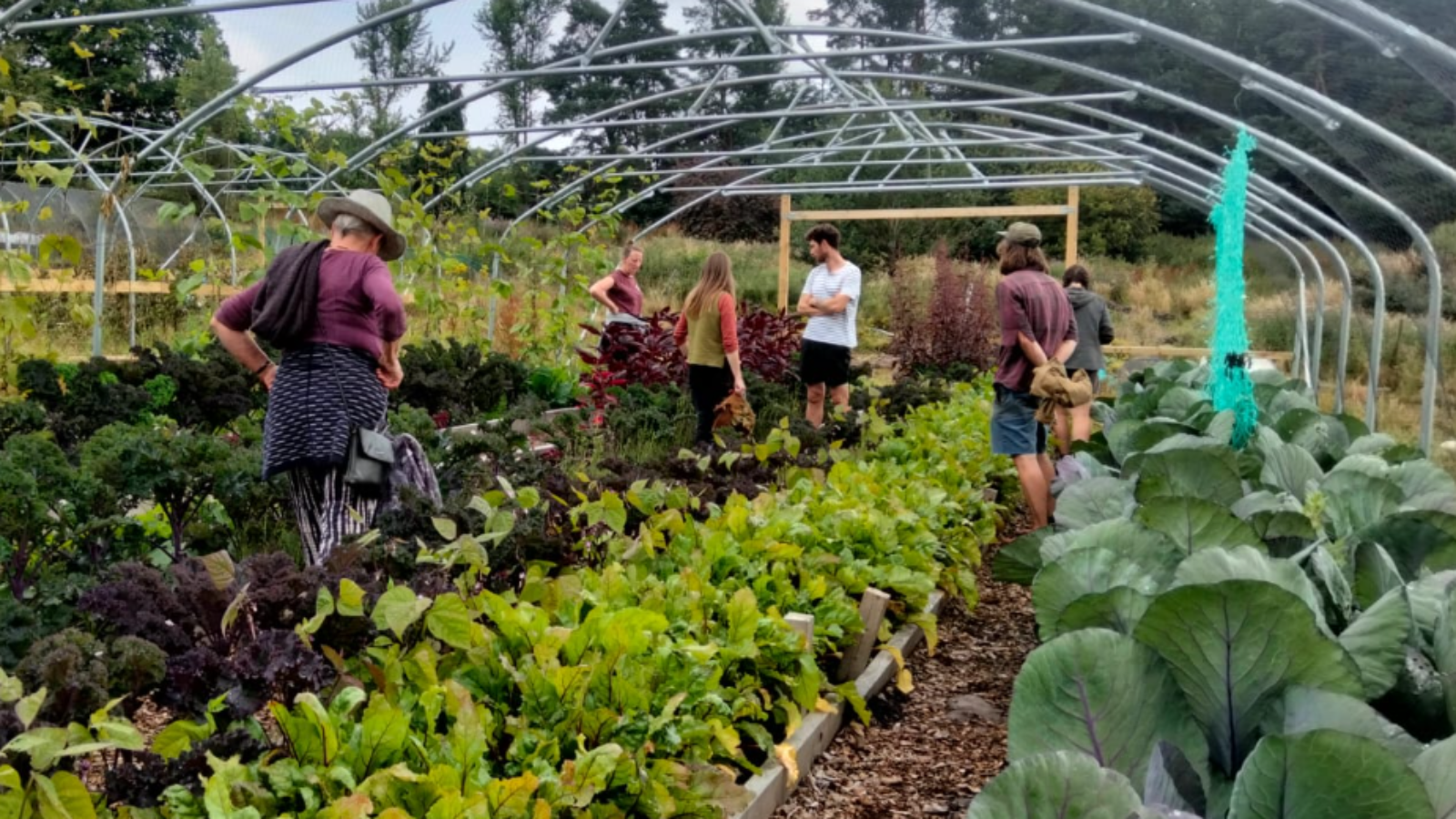Campy Growers, or Camperdown Growing Collective, have reclaimed the former Dundee Council nursery in Camperdown Country Park on the west side of the city and are breathing life back into the soil to produce fresh fruit and vegetables for local folk, demonstrating what’s possible with a big vision, a team of regular volunteers and a lot of city council Discovery Compost produced from the city’s green waste!
Campy Growers grew from a feasibility study in 2019 reviewing interest regarding the former council plant nursery site and local people’s need for fresh, affordable food. The group took on the ground once covered in plastic, full of flatworm and heavily compacted from years of growing in pots. The soil then was a combination of clay and grit between two layers of plastic, quite acidic in places and with a history of regular glyphosate use. Some said “you will never grow anything in that.” However, determination and hard work have seen this unused land, close to a dense urban population, brought back under cultivation to feed people. The Campy Growers have since grown in number and have quadrupled the area under cultivation. Theirs is a story of reclaiming and working the soil for the common good.
Nadege, Project Development Worker/Gardeniser, shares their soil story. “It took all winter to remove the plastic: there was no air or water infiltration, and the soil was very poor and compacted. We used the no-dig broad fork method, which perforates and aerates the soil and lets the worms do the work. The soil contains quite a lot of clay in places; by adding 5cm – 10cm of dark council compost on top of the original paler soil, we could soon see evidence of the worms bringing the compost down into the ground and bringing the soil back to life. Bed by bed, we are slowly reclaiming the soil.”
Other regenerative approaches used on site include leaving the roots in from the harvested veg, such as beans and lettuce, so that they continue to feed the soil; rotating crops and experimenting with different types of ‘green manure,’ chicory, clover, and phacelia, to break up and enrich the soil and welcome the bees. “Three years on, and the soil is producing a variety of crops that are growing well. We keep working to improve the soil, but there have been challenges.. we’ve lost 60 raspberry canes this year because one soil area was too acidic, so we are experimenting with methods to reduce the acidity. We also have constant battles with huge slugs that we collect several times a week and rehome in the park. It’s all trial and error, but we keep going, our work feels positive, hopeful and supporting people to grow their food is increasingly important.”
Campy Growers’ soil story is theirs, but every community growing site has one with different challenges and successes. However, looking after our soil together is an amazing, shared purpose, and every growing space that grows with and for nature and climate has soil health at its heart.
Want to know more?
Need support with your soil journey? Help@ can support you with practical resource, horticultural advice and signpost you to other groups with a similar experience.


